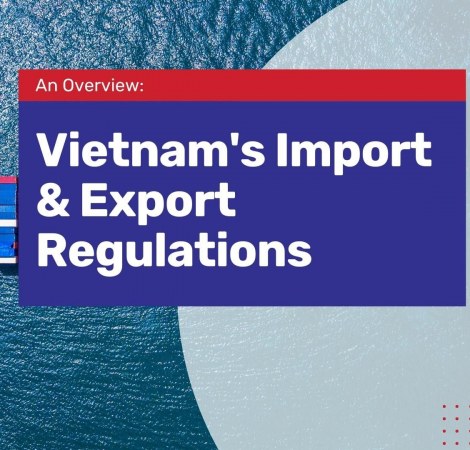Since the economic reforms in the 1990s Vietnam has taken massive steps to open up many opportunities in terms of international trade, import-export activities, and investment. Over the years, the country has also become of member of the ASEAN Free Trade Area and WTO. In fact, in 2020 Vietnam’s exports rose up by 7% to US$282.66 billion. Furthermore, Vietnam has also signed 7 regional and bilateral Free Trade Agreements (FTAs) with other countries including ASEAN Hong Kong FTA, UK-Vietnam Free Trade Agreement, and Vietnam-European Union FTA.
Investing in Vietnam’s Import and Export Industry? Check out the following services offered by Cekindo:
As more and more investors have set up their import/export and trading company in Vietnam, it is important for all levels in the company to get familiar with the import and export procedures and legislation in the country.
In this article, Cekindo will walk you through the details of the Vietnamese import and export regulations before you start a trading business in Vietnam.
Licensing Procedures for Import and Export in Vietnam
It is not necessary for a trading company in Vietnam to get an import or export license for the company incorporation. Nonetheless, a trading company in Vietnam is obliged to register at the Department of Planning and Investment (DPI) and acquire an investment certificate before they can perform any import or export activities.
All procedures on the investment certificate must be strictly followed for the export or import activities to happen.
Import and Export Restrictions
Under the Trading Law in Vietnam, certain goods are banned from export or import:
- Goods banned from export: Arms, Antiquities, wood logs, etc
- Goods banned from import: Weaponry, drugs, toxic chemical, fireworks, cigarettes, etc
There are some goods that require the trading company to get the government’s import and export permits:
- Goods under export control according to international treaties contracted by Vietnam
- Goods under export quota implemented by other countries
- Goods under import control according to the international treaties contracted by Vietnam
- Industrial explosives, explosive pre-substances, and chemicals
Trading companies must meet the food safety, quarantine, and quality standards and regulations of their goods before clearing customs. Customs declaration is also mandatory for importers and can be done online.
RELATED: EU-Vietnam Free Trade Agreement and Opportunities Offered
Import and Export Duties in Vietnam
Most exported and imported goods in Vietnam are subject to import and export duties. There are some exceptions though:
- Goods in transit
- Goods imported into non-tariff areas in Vietnam from other countries for use in non-tariff areas only
- Goods exported from non-tariff areas in Vietnam to other countries
- Goods passed from one non-tariff area to another non-tariff zone
Export duties are imposed mainly on natural resources in Vietnam and can range from 0 to 45% in Vietnam based on the free-on-board (FOB) price.
As for import duties, consumer goods, especially luxury goods, have higher rates of duties; and production equipment, machinery, and materials have lower rates or zero rate of duties.
Applicable Import Taxes
Almost every category of imported products is subject to import tax. Applicable import tax rates in Vietnam vary depending on the category of product as well.
Imported goods’ tax rates comprise of preferential tax rates, ordinary tax rates, and special preferential tax rates.
Applicable Export Taxes
Only certain products are subject to export taxes in Vietnam, ranging from 0 to 45%. Export taxes range from 0 to 45 percent and is specified based on the type of item under the Export Tariff. The current VAT for exported products is 0%.
Goods with Tax Exemptions
Certain goods of import and export are exempted from taxes in Vietnam under specific conditions. For more information, please refer to the latest import/export regulation or contact Cekindo’s consultants.
Australia is one of the potential countries to export the goods to Vietnam, get more insight: Trading Guide: How to Export Goods from Australia to Vietnam?

How Cekindo can Help
Cekindo’s custom support and streamlined operations will ensure a more successful trade for your business.
Whether you want to establish a trading company or secure your import and export licenses in Vietnam, our team of professional consultants and legal specialists are at your disposal.
Get in touch by filling in the form below.
